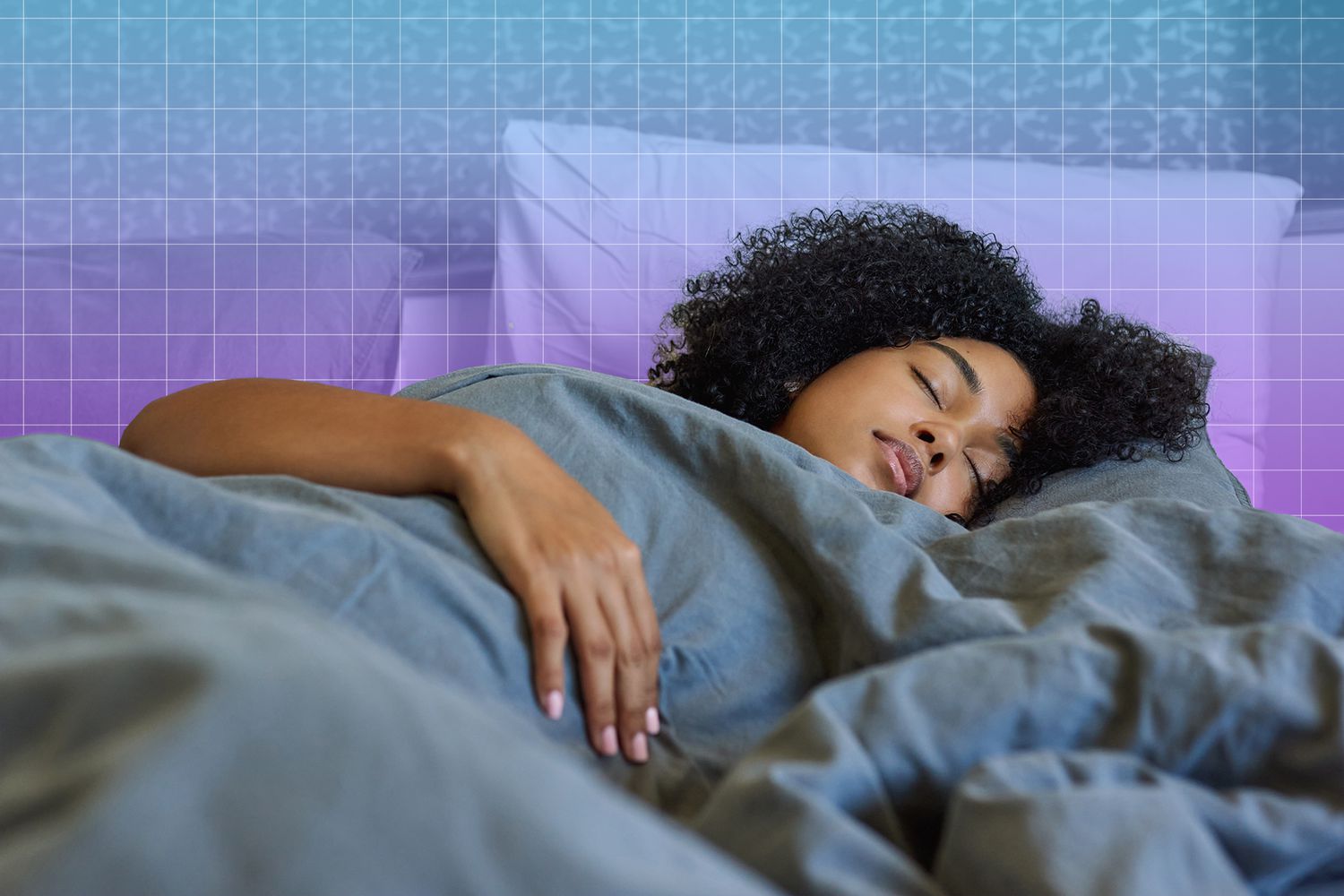When was the last time you woke up feeling chipper, well-rested and ready to take on the day? If you’re like the average American, that certainly wasn’t this morning. A 2022 study in the journal Frontiers in Sleep reports that only 28% of American adults get the quality and quantity of shuteye that’s ample enough to qualify as “restorative sleep.” And in the past several decades, more and more people are turning to melatonin to help. However, that can lead to some effects on the body that might surprise you.
“Melatonin is a hormone that is naturally released by the body. It’s not technically a sleep hormone, but it’s a hormone that tells the body that it is nighttime and that it’s time for all the organs to move to night mode,” says Roy Raymann, Ph.D., a Vista, California-based sleep expert and advisor to Somnox. Under normal circumstances, melatonin is released by the pineal gland in the brain shortly after sunset and for the duration of the night. But when you’re exposed to less-than-normal daytime light, your natural melatonin production may be thrown off track. To counteract this, supplement companies have created pill and liquid forms of melatonin.
Supplemental melatonin is often quite effective at that job, but there are some health impacts you should keep in mind if you take it regularly; Dr. Raymann and Carleara Weiss, Ph.D., a New York City-based sleep science advisor at Aeroflow Sleep, agree. Plus, Dr. Weiss shares that the response to melatonin fluctuates according to age group, gender and time of consumption. Ahead, the various ways taking melatonin daily can impact your body, your brain and your bedtime.
You Might Observe a Bit of Lag Time
It generally takes about one to seven days for melatonin to impact the quality and quantity of sleep, explains Dr. Weiss. When taken in the proper dose (for adults, usually between 1 to 5 milligrams) at the correct time and in a safe form (look for third-party verification seals), you should experience a shortened time to fall asleep. That said, the correct dose of melatonin supplements depends on your age, sex and health status.
Depending on the type of melatonin pill you’re taking, it will act more immediately or will work over the course of the evening, adds Dr. Raymann. The regular immediate-release pills will cause a peak in melatonin within an hour, while the prolonged-release capsules will gradually release the melatonin.
You May Notice a Slight Decrease in Body Temperature
“It’s critical to remember that melatonin does not make us fall asleep but increases the signaling to the brain to create sleep opportunities. Thus, by taking melatonin, our brain gets into ‘sleep time mode,'” says Dr. Weiss.
By putting organs into “night mode” and changing the blood flow to support a drop in body temperature that normally occurs during the night as part of our circadian rhythm melatonin might facilitate and support the bodily processes to fall asleep and stay asleep.
“But it does not act as a hypnotic or like a traditional sleeping pill—by putting you to sleep—but rather prepares you for sleep,” says Dr. Raymann.
So since that’s the case, lifestyle changes, like reducing bright light exposure, taking a warm bath or shower and following a relaxation-promoting sleep routine, are also crucial pieces of the puzzle.
You Might Feel Happier
Melatonin production derives from serotonin, a neurotransmitter and hormone that, among other things, promotes a positive mood and feelings of happiness, explains Dr. Weiss. Melatonin also influences dopamine production in the brain.
“Dopamine is a neurotransmitter and hormone involved in feelings of pleasure and motivation. Thus, melatonin might reduce feelings of anxiety and depression,” says Dr. Weiss.
You Might Increase Your Risk for Some Health Issues
Even though melatonin is a hormone, not a supplement, it still has side effects and medical interactions, notes Dr. Weiss. “For example, some people might experience side effects after taking melatonin, including drowsiness, stomach aches or dizziness,” says Dr. Weiss.
Since supplemental melatonin is relatively new in the grand scheme of human existence, the long-term effects are not completely clear. A healthy body takes care of releasing the hormone melatonin itself, and hormonal balances can be delicate in the human body.
“By adding extra melatonin every night, you might throw off that delicate balance in the long run, and might experience the side effects of the body needing to re-balance, whenever you decide to stop using melatonin,” says Dr. Raymann.
Additionally, extra precautions should be taken by anyone who:
- Is pregnant or breastfeeding
- Uses birth control pills
- Uses anticoagulants
- Takes blood pressure medications
- Takes medications prescribed for diabetes
- Is undergoing dialysis
- Has an autoimmune condition
- Has impaired liver functioning
And should avoid taking melatonin without consulting their health care providers. And for all populations, it shouldn’t be thought of as a magic pill.
“From a clinical standpoint, melatonin is indicated for treating sleep and circadian rhythms disorders such as jet lag and shift work. Melatonin is not the primary recommendation to treat insomnia. Anyone struggling to sleep should seek assistance from a sleep specialist,” Dr. Weiss says.
You May Start Feeling Dependent on It
Although melatonin is not thought to be psychologically or physiologically addictive, just like any other sleep aid, it can create the belief or the feeling that you need your pill every night for a good night of sleep.
If you notice that you start worrying about the potential ripple effects on your sleep if you skip your daily dose, that’s a good sign that it might be wise to ease off melatonin or check in with your doctor again.
The Bottom Line
The scientific evidence of the long-term use of melatonin is limited, says Dr. Weiss. The current clinical consensus is that daily melatonin consumption is considered safe. However, according to a 2020 article published in Antioxidants, more research is needed to determine the correct dose and time and understand potential long-term effects.
As the first course of action, if you notice sleep challenges, try to adjust your sleep setting with bedroom design tips, diffuse one of these relaxing essential oils and add foods that help with sleep like fruit, dairy and fish to your diet. Steer clear of caffeine, alcohol and bright screens late in the day, aim to get some fresh air and sunshine in the morning and try to keep a regular sleep and wake schedule, Dr. Raymann suggests.
If you still struggle to snooze, talk to your health care provider about a supplement like melatonin or other possible treatment options.


